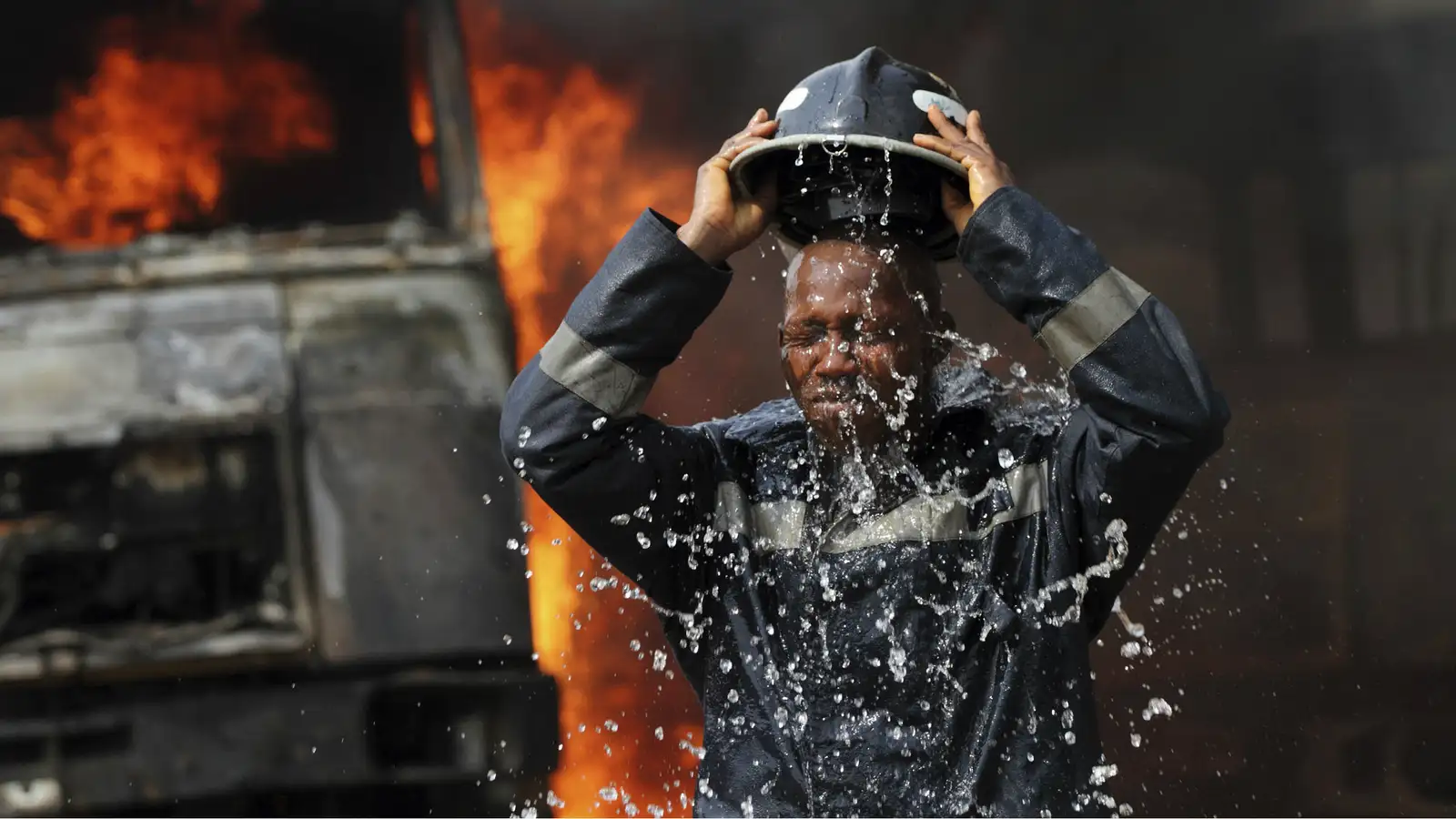In the last few days, Lagos, Africa’s biggest mega city, has been hit by one of the most intense heatwaves in its recent history. Forecasts from the Nigerian Meteorological Agency (NIMET) have temperature readings as high as 97°F (36°C) in Lagos—abnormally high at this time of the year when the recorded average is 84°F (29°C). Similar high temperatures have been forecast for the rest of the country.
NIMET has linked the heatwave to the annual transition in between the traditional dry and rainy seasons. But, given the intense heat in last couple of weeks there’s been some mutterings and speculation from locals about the possibility of climate change. That’s a worry given Lagos is one of the world’s least protected mega-cities from the impact of climate change.
A recent study by researchers at the University College London has found that Lagos ranked among the lowest with the regard to spending on climate change adaptation by leading global mega-cities. At $72.3 million, Lagos’ spending in 2015 paled in comparison to the $2.3 billion spent by New York on adapting to climate change.
Despite lower spending, Nigeria’s government is chasing ambitious climate change plans. Last December, as part of the landmark climate change deal reached in Paris, it committed to cutting down greenhouse gas emissions by 45% by 2030. To this end, it is ramping up its renewable energy program.
Power change
Perhaps the heatwave can be tolerated as a standalone problem but given the erratic power supply in Nigeria, the heat poses a major problem for most Nigerians. As an alternative to the erratic power supply, most Nigerians are forced to run expensively maintained gasoline and diesel-run power generators but even this cannot always be banked on as access to fuel is not always guaranteed given frequent fuel scarcity crises.
Tosin Abiodun, a Lagos-based auditor, says she has had to make significant changes to her lifestyle. “No-one can remember the heat being as severe and the erratic power supply makes things even worse. The only way to survive is by taking multiple showers, sometimes at night, sticking to light clothing, and in my case, totally ditching make-up.”
While not quite as major as China’s ‘heatwave economy’ boom of 2013, the heatwave across the country is likely to have resulted in an uptick in sales of locally-made hand-fans.
Afolabi Jubilee, a delivery staff for an online retailer, says the heatwave has made a difficult job even tougher. “We regularly contend with logistics and traffic issues trying to get across Lagos but this heat makes matters even worse,” he told Quartz.
